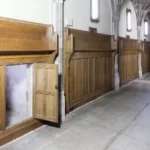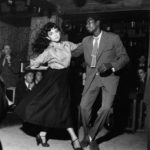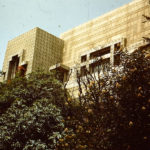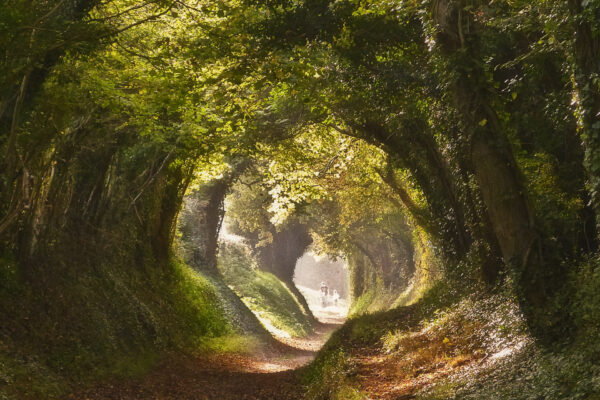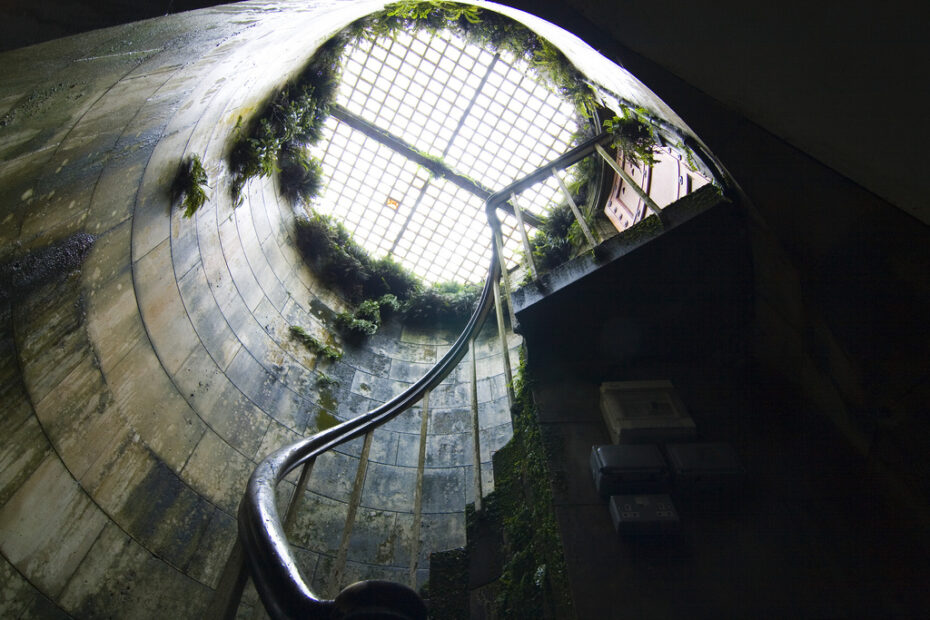
Beneath the lake of a once lavish Victorian estate built by a flamboyant mining tycoon, a secret awaits…
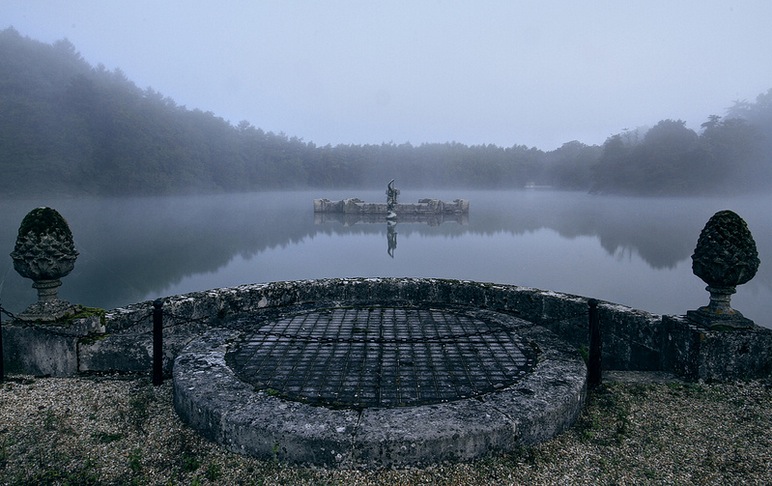
At murkey water’s edge, a stone structure being overtaken by greenery hides a locked door.
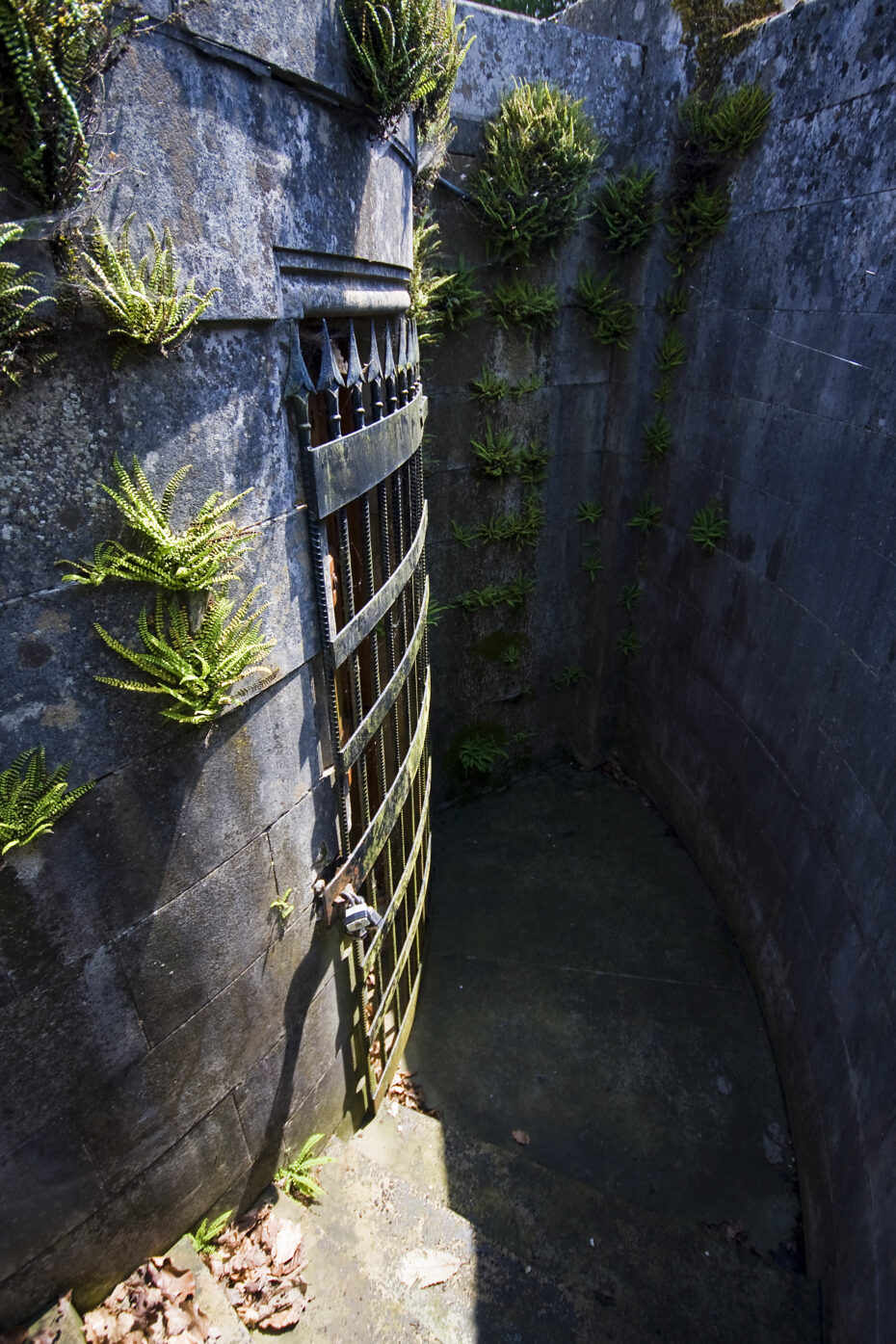
If you happen to have the right key, it will lead you down a spiral staircase and underneath the lake until you’re standing right at the centre below a statue of Neptune which appears to walk on the water’s surface…
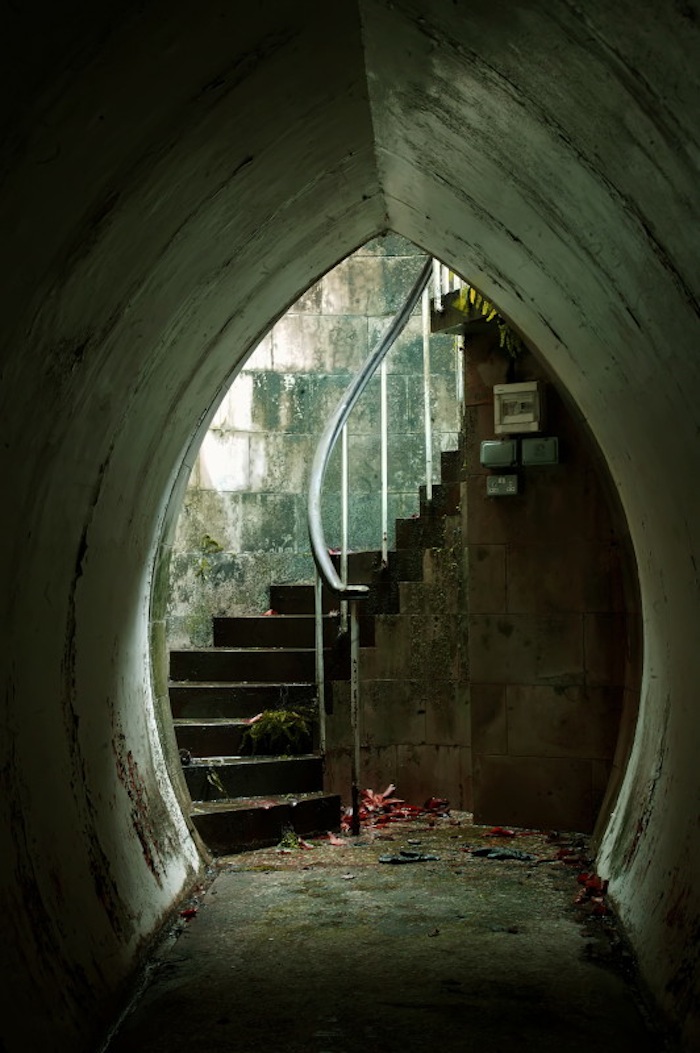
The strange and damp tunnel 40 feet below the surface leads to a long-forgotten architectural marvel, the sodden remains of one man’s elaborate Victorian fantasy come true– before it all came to a very abrupt and scandalous end…
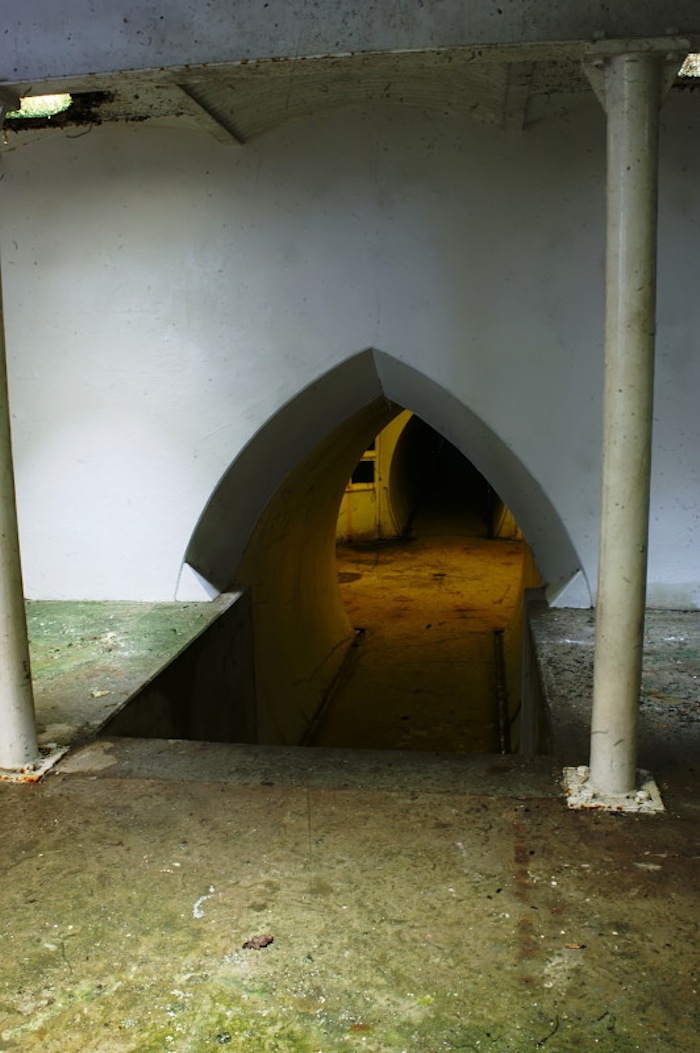
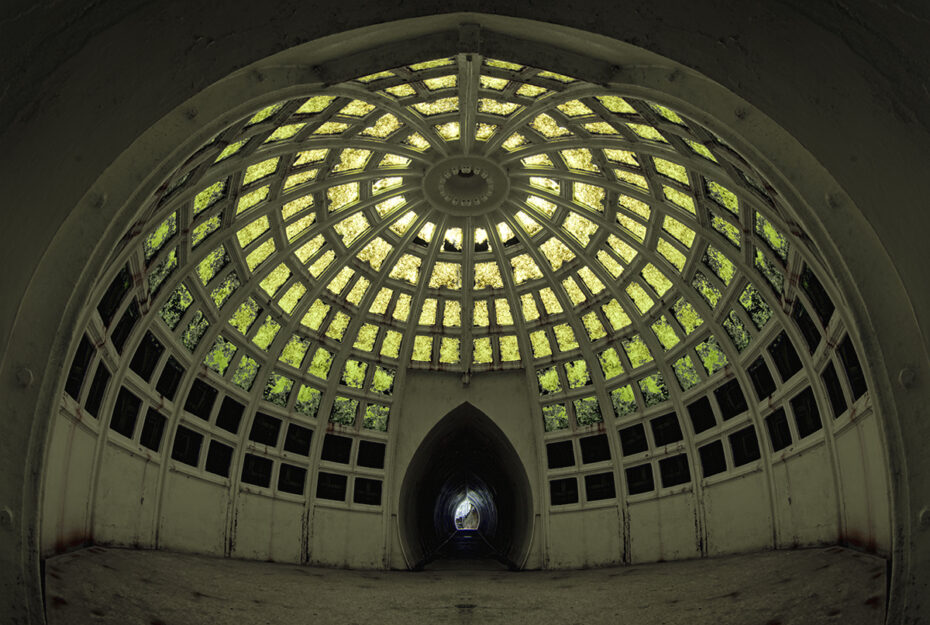
We’re standing inside the abandoned underwater leisure room built by mining magnate Whitaker Wright who made his fortune in America before returning to England. The circular domed room, about 20 feet in diameter, was one of his last lavish projects installed at his ostentatious Surrey estate, which also boasted a theatre, observatory, velodrome, private hospital and stables to accommodate more than 50 horses. On the apex of the dome, stands the statue of Neptune, through which historians say a pipe led up to the surface for expelling excess cigar smoke. A smoking room, a billiards room, a ballroom– there are varying opinions on what exactly Wright used the room for, but whatever its official purpose, it would no doubt have been very useful for impressing guests.
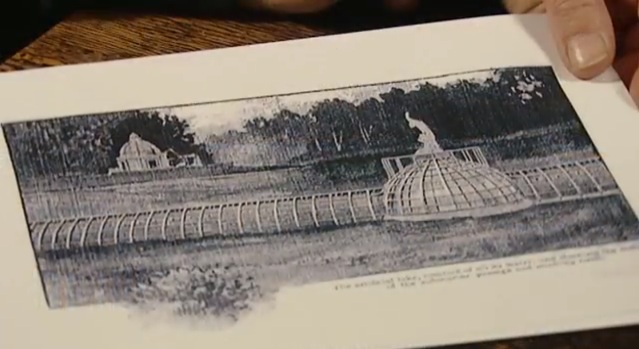
These illustrations unearthed by local historian, Hugh Thurrall-Clarke from a British periodical magazine of the 1920s, show what the lake would look like drained of water, exposing the tunnel leading from one side of the lake to the other.
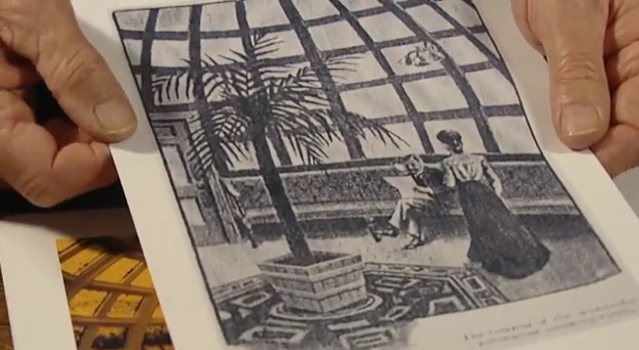
The domed room is depicted as a smoking lounge, with mosaic flooring and a deep-buttoned seating bench that curves with the room.
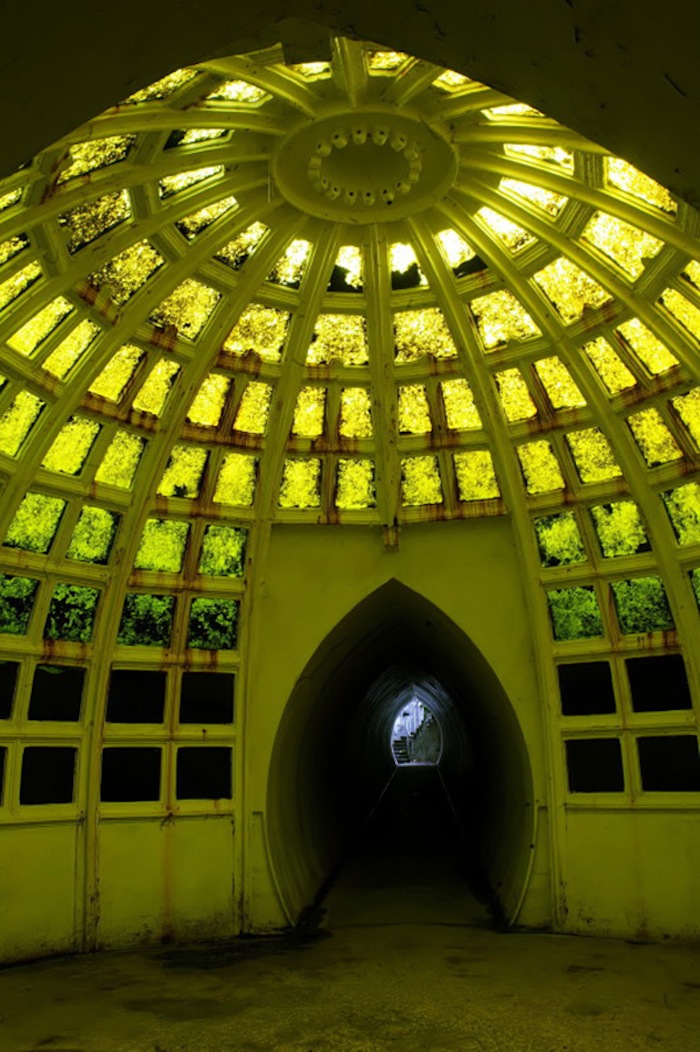
Today, the room is bathed in yellow light during the day from the build-up of algae on the glass and metal dome. In its heydey, Wright brought in trainee divers to clean the outside of the glass. It’s the belief of some historians that the tunnel leading to the dome might be the very same tunnel from London’s Bakerloo line stations. Whitaker himself was involved in the financing of the Bakerloo line and it’s highly possible that these were bits of tunnelling from the construction of Bakerloo that were excess to requirements at the time. Notice the similarities in shape…
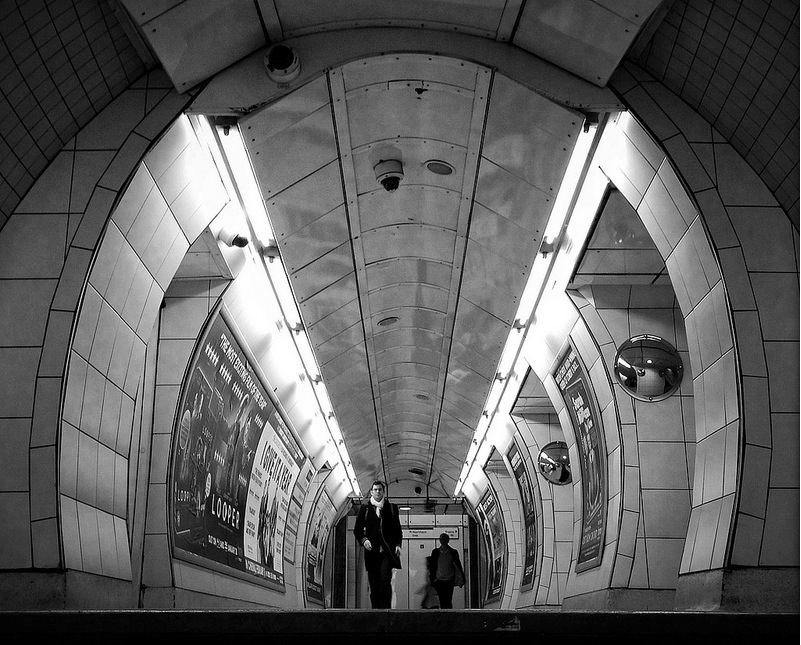
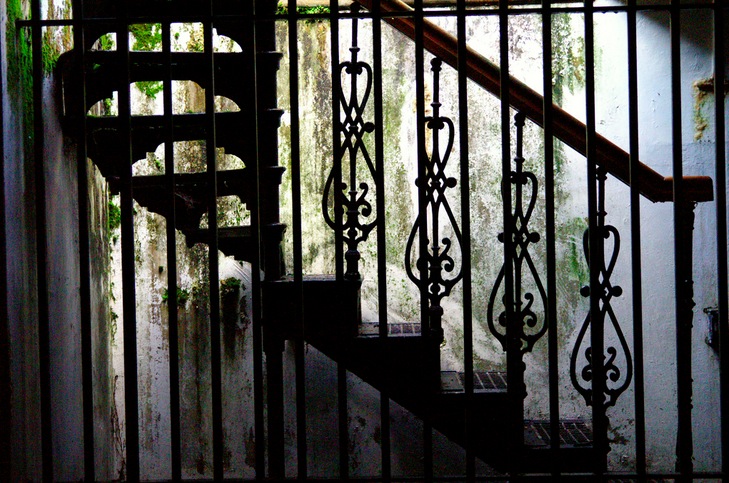
Despite the clues left behind of an extravagant show piece, this secret aquarium hasn’t entertained for many decades, and the scent of Whitaker’s exotic brand of cigars hasn’t lingered here since 1908 when he took his own life to avoid his doomed fate.
 A Victorian “Bernie Madoff”, Wright was convicted of fraud and faced a seven-year imprisonment after a career of fooling trusting investors to back non-existent mining projects while he poured their money into his estates and follies (like underwater ballrooms). Immediately after he was sentenced, he committed suicide by swallowing cyanide in a court anteroom. A revolver was also found in his pocked, presumably as a backup in case the cyanide failed. In spite of his career as a swindler, there was a great outburst of grief at his funeral at his estate, where he is buried.
A Victorian “Bernie Madoff”, Wright was convicted of fraud and faced a seven-year imprisonment after a career of fooling trusting investors to back non-existent mining projects while he poured their money into his estates and follies (like underwater ballrooms). Immediately after he was sentenced, he committed suicide by swallowing cyanide in a court anteroom. A revolver was also found in his pocked, presumably as a backup in case the cyanide failed. In spite of his career as a swindler, there was a great outburst of grief at his funeral at his estate, where he is buried.
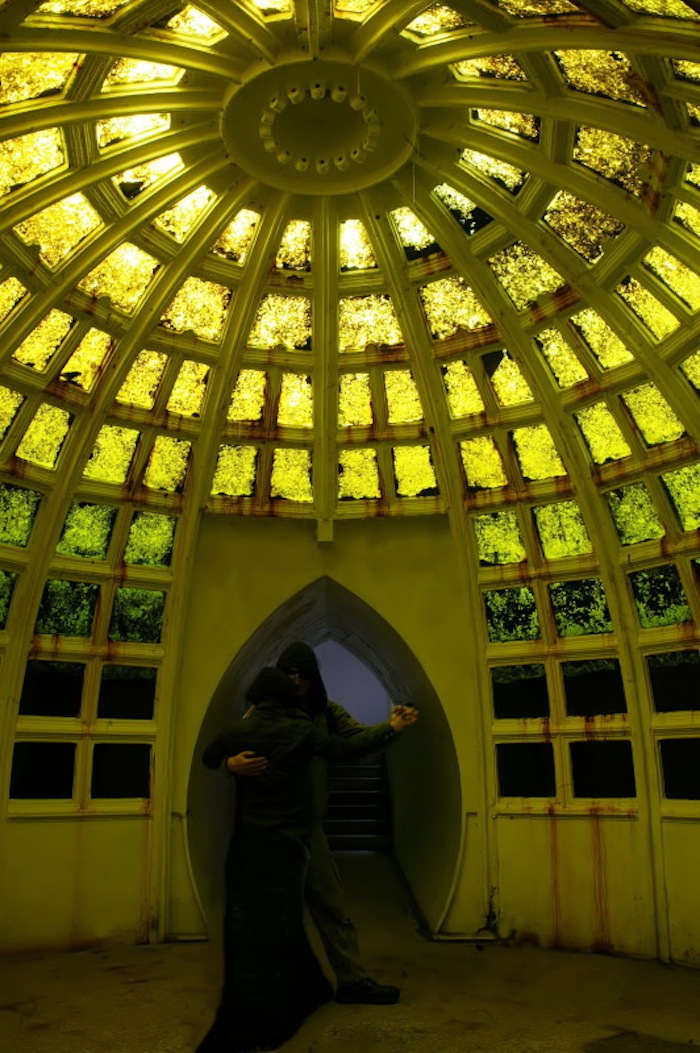
After his death, Wright’s estate was auctioned off and sold to Lord Pirrie, notable for his role in the building of the Titanic. As for the underwater ballroom, it’s unknown whether Pirrie made use of it, but some locals of the area claim that in the 1930s, their ancestors would sneak into the park and down into the dome with candles and a wind up gramophone to hold clandestine dances there at night.
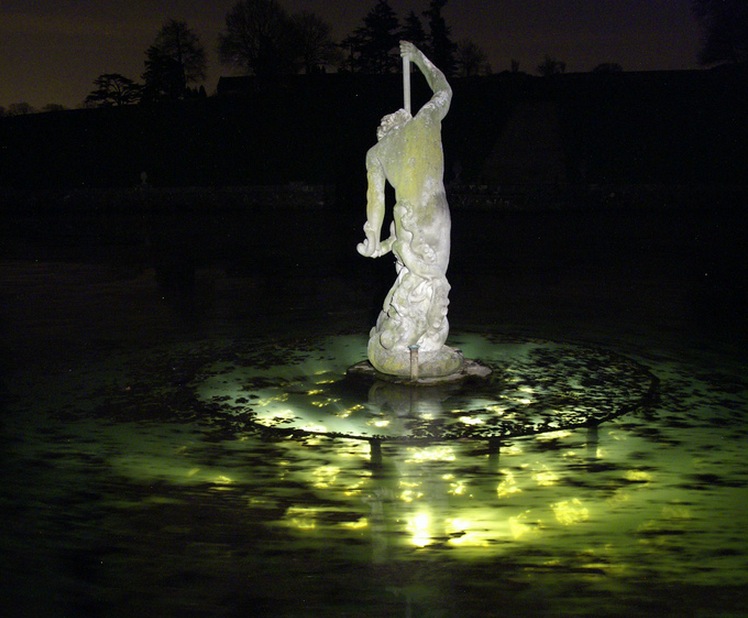
Even damp and deserted, you can almost imagine it as it was once intended; impressively lit, expensively furnished with the echoes of laughter and dancing feet while fish pressed their noses against the glass to see what was going on.
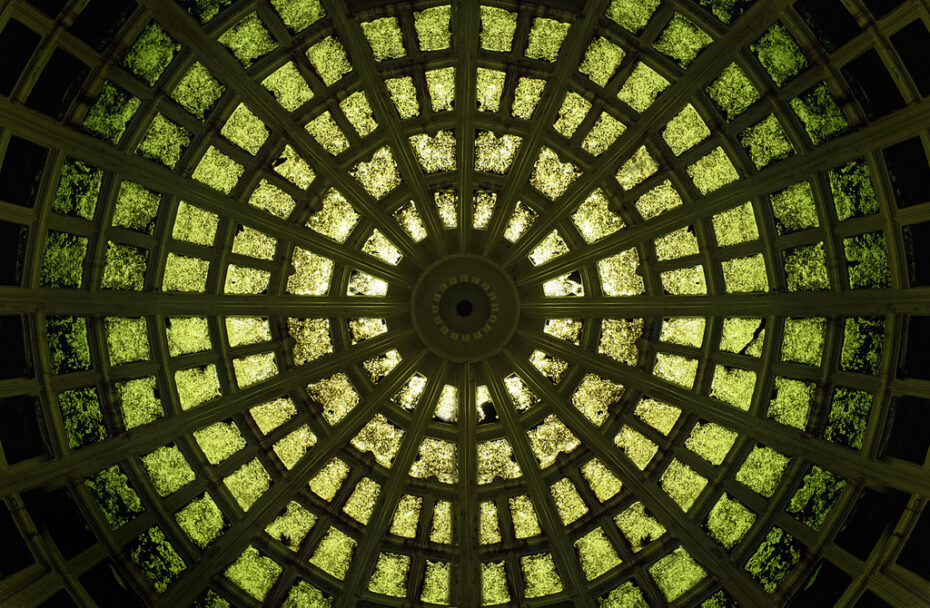
Witley Park is now a private family home, not open to the public. In 1952 a tragic fire destroyed the 32-bedroom mansion built by Wright and the gutted remains were demolished. In later years, a new modern home was built elsewhere on the property.
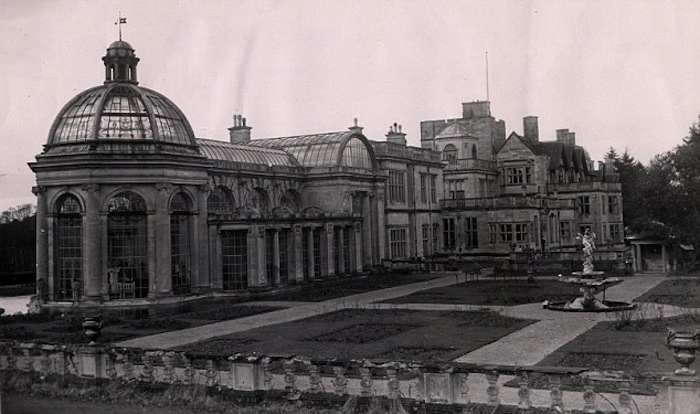
The landscaped park still remains however, along with the lakes, run-down boat houses and the hidden ballroom. Permission is very rarely granted to see it, although determined visitors occasionally tend to find their way in anyway.
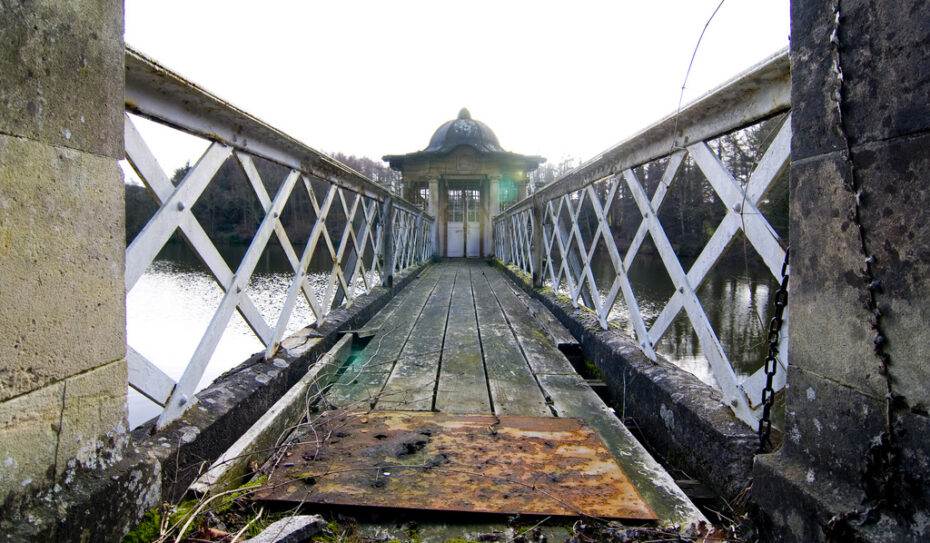
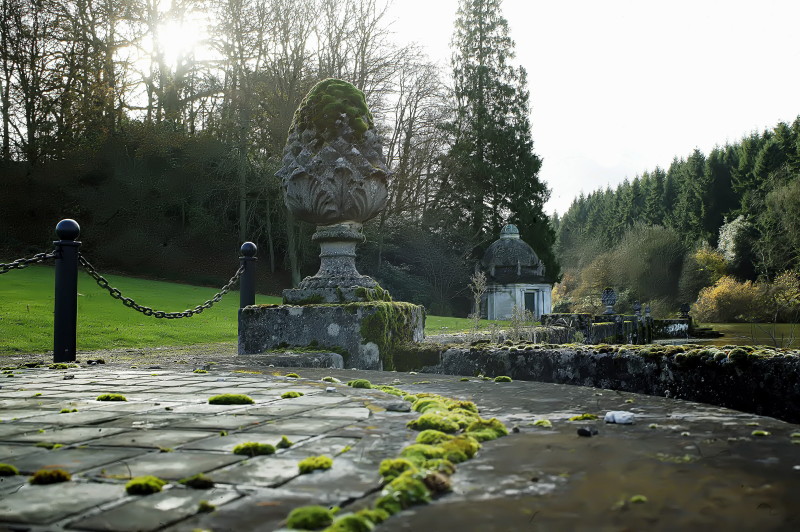
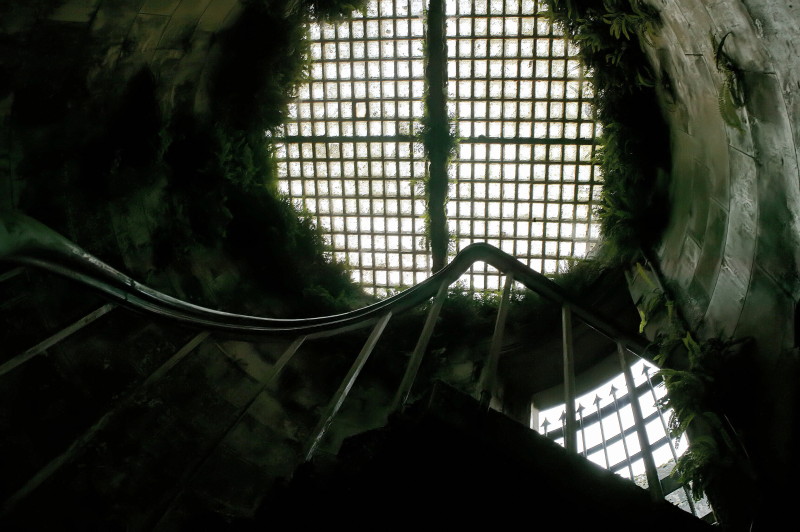
What will be the fate of this strange secret of underground Britain? What could it be used for today? I’m certain there won’t be a shortage of imaginative ideas out there …
Discover more of what’s left of Whitaker Wright’s estate here. Images via Oblivion State, Flickr one, two, Forgotten Heritage, Hidden History
P.S. Thanks for the reader’s tip Mario!


